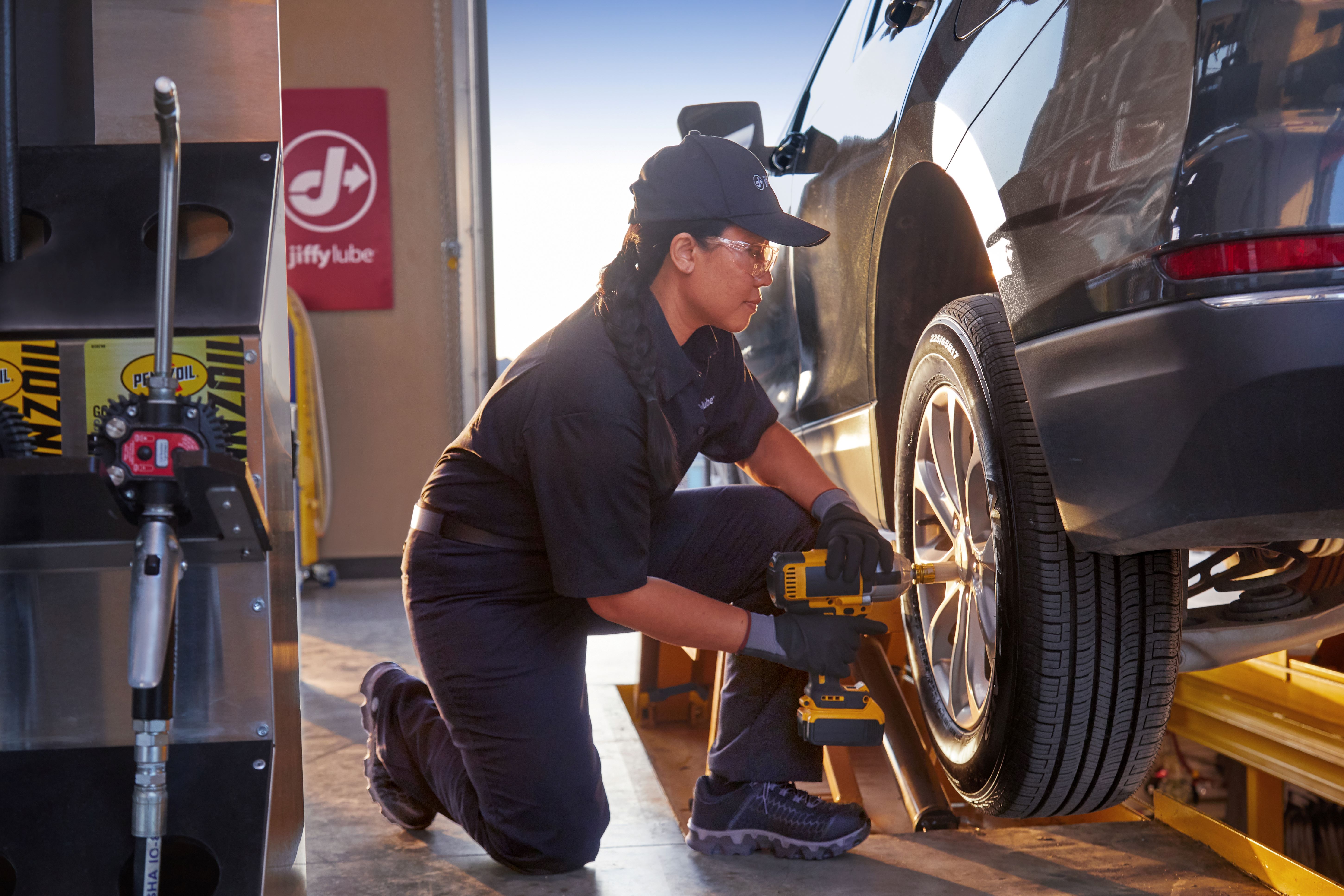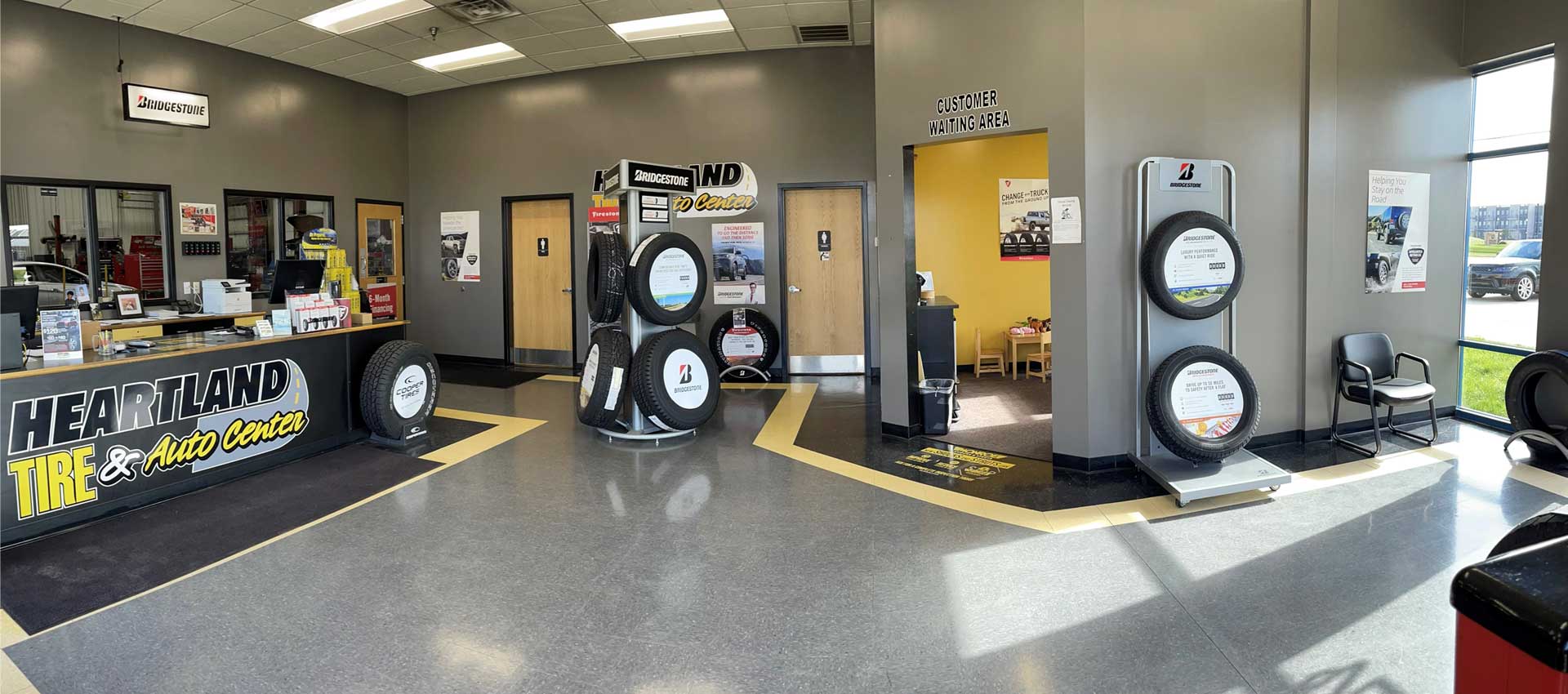Tire Solution: Comprehending Tire Stress Monitoring Equipments
Understanding Tire Pressure Surveillance Systems (TPMS) is an essential aspect of keeping optimal car efficiency and safety on the roadway. With developments in auto technology, TPMS has actually come to be a common attribute in modern automobiles, giving real-time information on tire pressure levels. Digging much deeper into the complexities of TPMS, one can reveal the various elements that make up this system and the significance of each in making certain accurate monitoring. From direct to indirect TPMS systems, the landscape of tire stress surveillance is diverse, each with its distinct set of advantages and factors to consider. Stay tuned to untangle the complexities of TPMS, from upkeep tips to the undeniable benefits of keeping your tires correctly pumped up. discount tires morris il.

Relevance of TPMS
The importance of Tire Stress Tracking Equipments (TPMS) hinges on their capability to boost lorry safety and security and efficiency with real-time tracking of tire pressure degrees. Preserving the correct tire stress is critical for ensuring optimum handling, braking, and general safety of a car. TPMS gives motorists with immediate responses on any type of overinflated or underinflated tires, enabling for timely changes to be made.
Parts of TPMS
Sensors are commonly situated in the tire valve stem or affixed to the wheel setting up, where they measure tire stress and transfer data to the control component. Some advanced TPMS models additionally present the actual tire stress analyses for each tire, providing vehicle drivers with real-time info to ensure optimum tire efficiency and safety. By keeping track of tire pressure continually, TPMS aids stop mishaps, reduces tire wear, and boosts gas effectiveness, making it a crucial component for vehicle security and performance. morris tire and alignment.
Kinds Of TPMS

On the various other hand, indirect TPMS counts on the car's wheel speed sensing units to keep track of tire pressure. This system finds underinflation by contrasting the rotational rates of the wheels. Indirect TPMS is less costly than direct TPMS, as it utilizes existing sensors within the car.
While straight TPMS supplies much more exact readings, indirect TPMS is easier in layout and usually calls for less maintenance. Both systems have their restrictions and benefits, and the choice in between them frequently depends upon factors such as expense, vehicle make, and individual choice. Understanding the distinctions between these two sorts of TPMS can assist vehicle proprietors make informed decisions pertaining to tire upkeep and safety and security.
TPMS Upkeep Tips
Reliable upkeep of TPMS is essential for ensuring optimal performance and security of your vehicle. Frequently examining the TPMS sensing units for any type of damage or corrosion is essential. Guarantee that the sensors are totally free and clean from debris that can hinder their functioning. Furthermore, it is recommended to examine the sensing unit batteries regularly and replace them as required to assure accurate analyses. Conduct our website regular look at the tire pressure degrees and contrast them with the TPMS readings to ensure they correspond. If there are any kind of disparities, rectify the system complying with the manufacturer's guidelines. Furthermore, throughout tire turning or replacement, see to it that the TPMS parts are handled carefully to stop any kind of prospective damages. Lastly, if the TPMS alerting light illuminates on the control panel, address the concern without delay by checking the tire stress and the general system for any type of faults. By sticking to these maintenance pointers, you can extend the life expectancy of your TPMS and enhance the safety of your driving experience.
Advantages of Proper Tire Stress
Maintaining correct tire stress, as emphasized in TPMS Maintenance Tips, is vital for reaping the countless benefits linked with ideal tire pressure levels. Additionally, correct tire stress guarantees even tire wear, extending the life-span of the tires and advertising safer driving problems. In final thought, the benefits of proper tire pressure go past simply tire durability; they encompass enhanced gas effectiveness, enhanced security, better vehicle efficiency, and general driving convenience.
Final Thought
To conclude, understanding tire pressure surveillance systems (TPMS) is vital for preserving optimal tire pressure and making sure lorry safety and security. By recognizing the importance of TPMS, recognizing with its components, knowing the various kinds available, sticking to appropriate maintenance suggestions, and recognizing the advantages of preserving proper tire pressure, chauffeurs get more can boost their driving experience and prolong the life-span of their tires. Correct tire stress is key to risk-free and reliable lorry operation.
